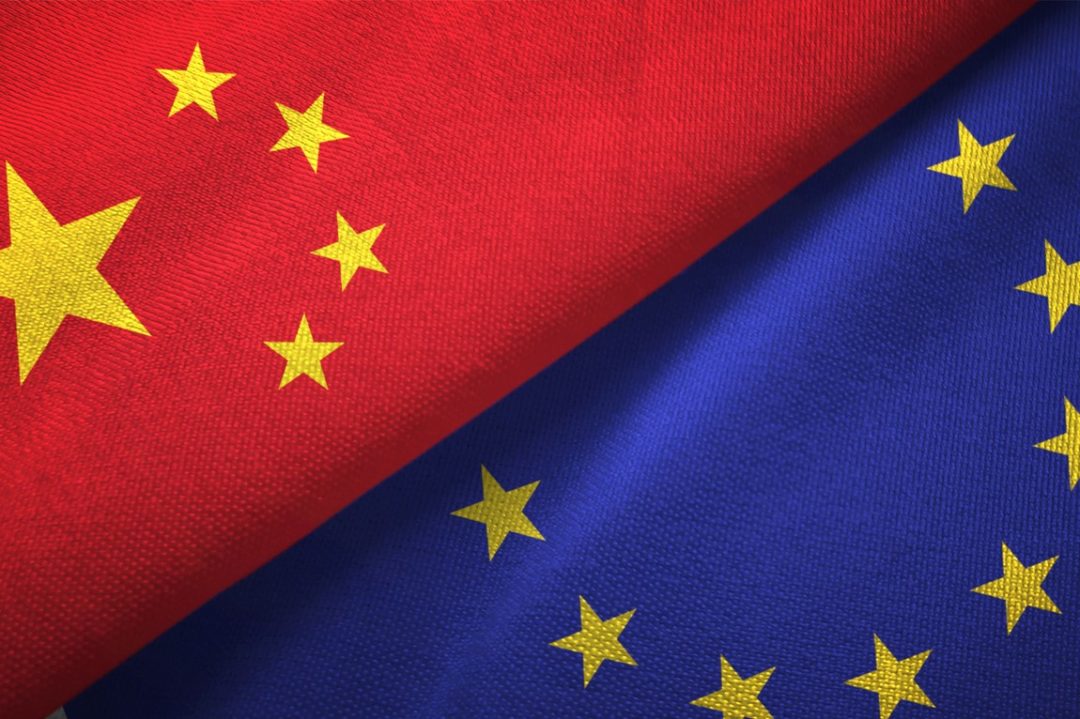
Visit Our Sponsors |
|
|
|
|
|
|
|
|
|
|
|
|
|
|
|
|
|
|
|
|
|
|
|
|
|
|
|
|
|
|
|
|
|
|
|
|
|
|
|
|
|
|
|
|
|
|
|
|
|
|
|
|
|
|
|
|
|
|
|

Photo: iStock.com/Oleksii Liskonih
The European Union has proposed extending strict trade restrictions to several Chinese companies for the first time, as it cracks down on firms supplying Russia with banned goods and technologies that have aided its war machine in Ukraine.
The bloc’s executive arm has asked member states to target about 35 more entities, including businesses in mainland China and Hong Kong, as well as companies in Uzbekistan, Armenia and the United Arab Emirates, according to documents seen by Bloomberg.
The European Commission says those targeted are “directly supporting Russia’s military and industrial complex in its war of aggression against Ukraine.” It calls for “stricter export restrictions regarding dual-use goods and technology, as well as goods and technology which might contribute to the technological enhancement of Russia’s defense and security sector,” one of the documents says.
The list, which is separate from the designation of individuals and entities on whom travel bans and asset freezes are imposed, includes several Iranian firms that were targeted in previous rounds of sanctions for manufacturing and supplying drones to Moscow, as well as hundreds of Russian firms. It would be the first time Chinese companies are added to the list.
The draft proposes including certain companies in third countries “involved in the circumvention of trade restrictions as well as certain Russian entities involved in the development, production and supply of electronic components for Russia’s military and industrial complex.” It cites “the key enabling role of electronic components.”
The eight Hong Kong and mainland Chinese firms currently listed in the proposal are:
• Sinno Electronics Co. Ltd.
• 3HC Semiconductors Co Ltd.
• Sigma Technology Ltd.
• King-Pai Technology Co., Ltd.
• Asia Pacific Links Ltd.
• Tordan Industry Limited
• Alpha Trading Investments Limited
• Allparts Trading Co., Ltd.
The Financial Times reported earlier that the EU was planning to sanction seven Hong Kong and mainland Chinese companies.
‘Firm Actions’
China’s Foreign Ministry spokesman Wang Wenbin said his country’s economic trade with Russia was “completely above board” at a press briefing in Beijing on May 8. “If the reports you mentioned are true, the EU’s actions will seriously undermine China-EU mutual trust and cooperation, and deepen division and confrontation in the world,” he said.
“It is highly dangerous,” he added. ”We urge the EU not to go on this wrong path, otherwise China will take firm actions to safeguard our legitimate and lawful interests.”
Several of the companies have been previously sanctioned by the U.S. for providing banned technologies and electronics to Russia’s military industrial complex.
The main focus of the proposed sanctions package, the EU’s 11th since Russia’s invasion of Ukraine, is on closing loopholes in measures already enacted, as well as strengthening the bloc’s ability to enforce its restrictions.
‘Airtight’ Procedures
“When one looks at statistics on EU exports of these very same goods to third states then in some cases, we do see a very, very steep incline,” Jonatan Vseviov, secretary general of the Estonian Ministry of Foreign Affairs, said in an interview last week. “So we’re going to shut that down.”
“We’re finding ways to shut it down diplomatically, talking to the countries in question, making sure that their procedures are airtight,” Vseviov said. “We’re going to make sure that the goods don’t end up in Russia.”
Other measures, according to the documents, would see listings criteria extended to cover Russian I.T. companies that have received licenses from the Federal Security Service of the Russian Federation (FSB), which enables them to provide critical technology and software to the Russian intelligence community. These I.T. companies often also hold a “weapons and military equipment” license administered by the Russian Ministry of Industry and Trade, one of the drafts says.
The proposals need the backing of all EU member states to be approved and could change before they’re adopted. Diplomats are set to discuss the new sanctions package later in May.
Evading Sanctions
Elsewhere, the set of measures includes a ban on many goods from transiting through Russia, restrictions on vessels that switch off their navigation systems and a new mechanism to target third countries the EU believes aren’t doing enough to prevent Russia from evading sanctions, Bloomberg previously reported.
The primary aim of the tool would be to deter countries from helping Russia and crack down on trade channels that Moscow may be exploiting. If that doesn’t work, the bloc would have the option as a second step of imposing targeted restrictions on key goods.
The new enforcement mechanism would give member states the authority to create two lists — one of affected third countries and the other of banned goods.
If the mechanism is approved by national governments, decisions on which countries and goods to list would be for member states to take unanimously. The measure is unlikely to target China at first, but focus mostly on nations in central Asia and Russia’s immediate neighbors.
Other proposals include designating about 70 people and 30 entities, extending prohibitions on goods to intellectual property rights and licenses issued to produce those items, export bans on more technologies used by Russia in Ukraine as well as restrictions on additional media outlets, including RT Balkans. The bloc is also looking to tighten guidance relating to ship-to-ship oil transfers and bans on entering EU ports.
RELATED CONTENT
RELATED VIDEOS
Timely, incisive articles delivered directly to your inbox.







